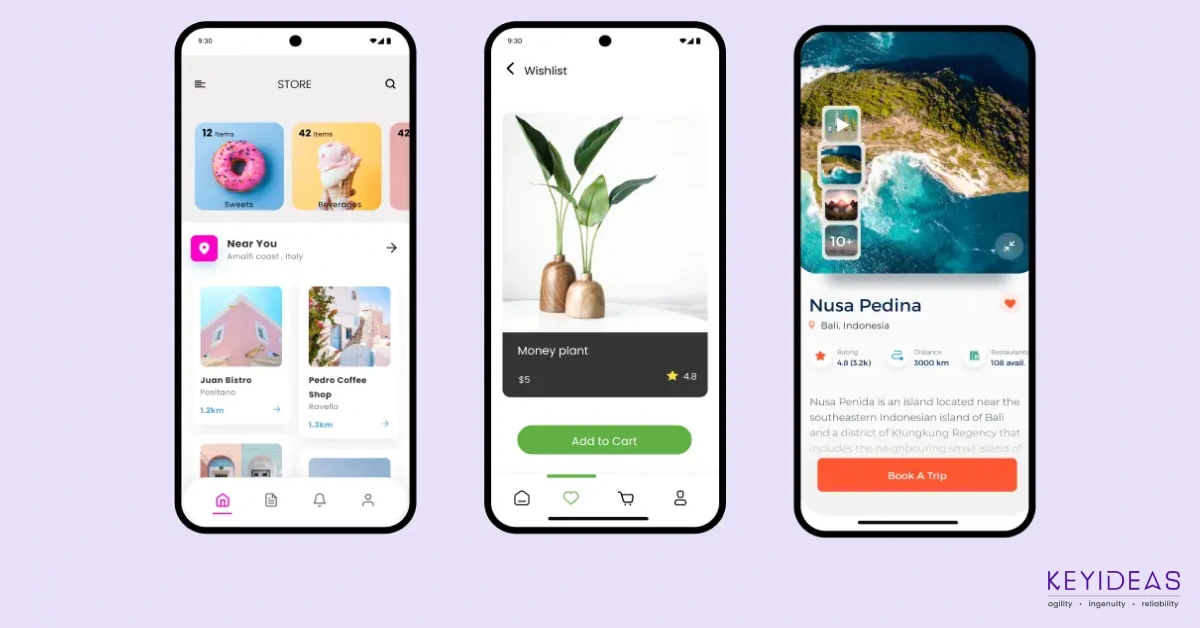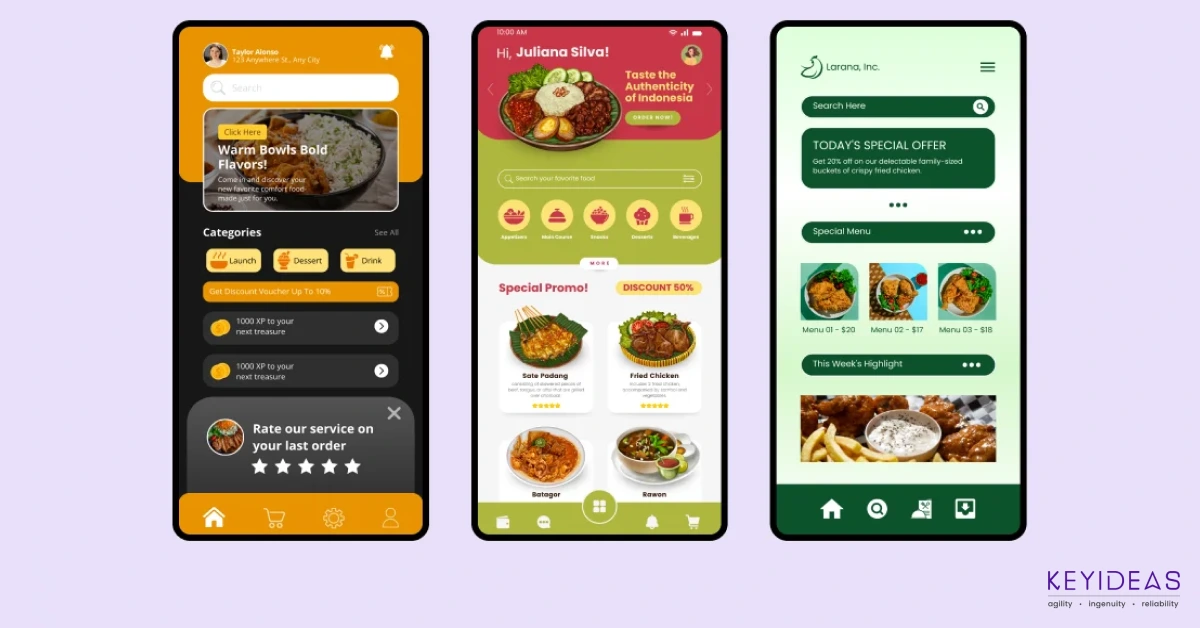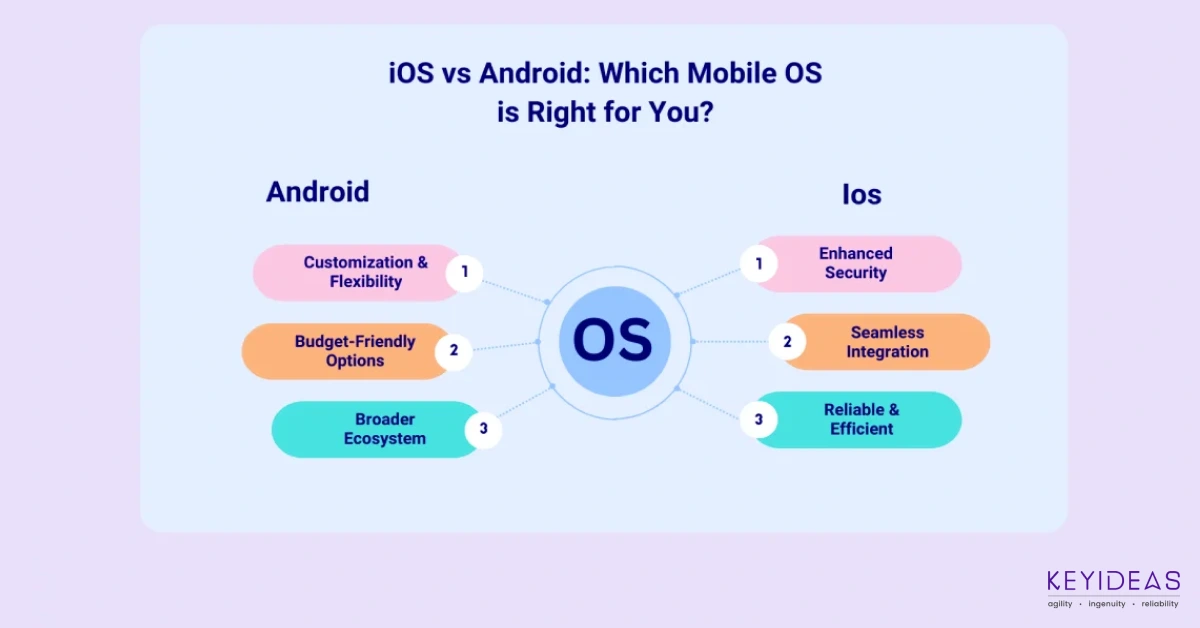
iOS vs Android : A Comparison of Mobile OS for Businesses
BlackBerry once led the enterprise mobile market, but now iOS and Android dominate. iOS stands out for its superior email support, seamless document sharing, and integration with Microsoft Exchange and Apple’s iWork suite, making it the preferred choice for businesses seeking security, reliability, and efficiency.
On the other hand, Android offers greater customization, flexibility, and a wider range of budget-friendly options but lags behind iOS in terms of security and consistent user experience. The choice between iOS and Android depends on an enterprise’s security needs, integration requirements, and budget considerations.
Key Features of iOS for Enterprises
Integration
iOS provides top-tier security, seamless integration, and efficient device management, making it ideal for businesses. Its enterprise tools ensure smooth operations and strong data protection.
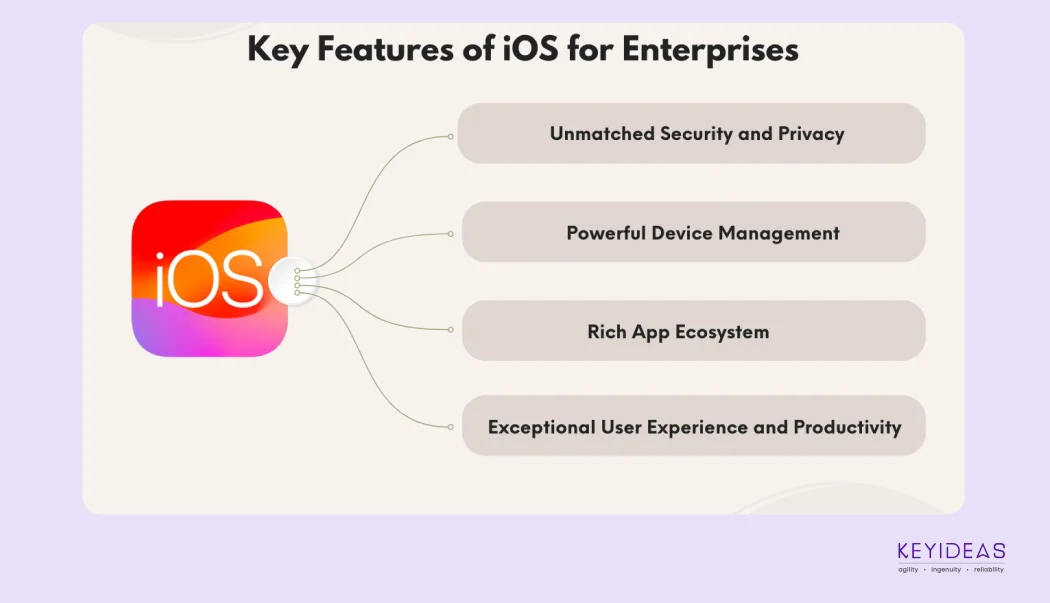
Security Benefits
iOS offers high-end security with features that restrict data access from third-party apps, enabling enterprises to remotely track or wipe stolen devices. This level of protection makes iOS a trusted platform for businesses prioritizing data security.
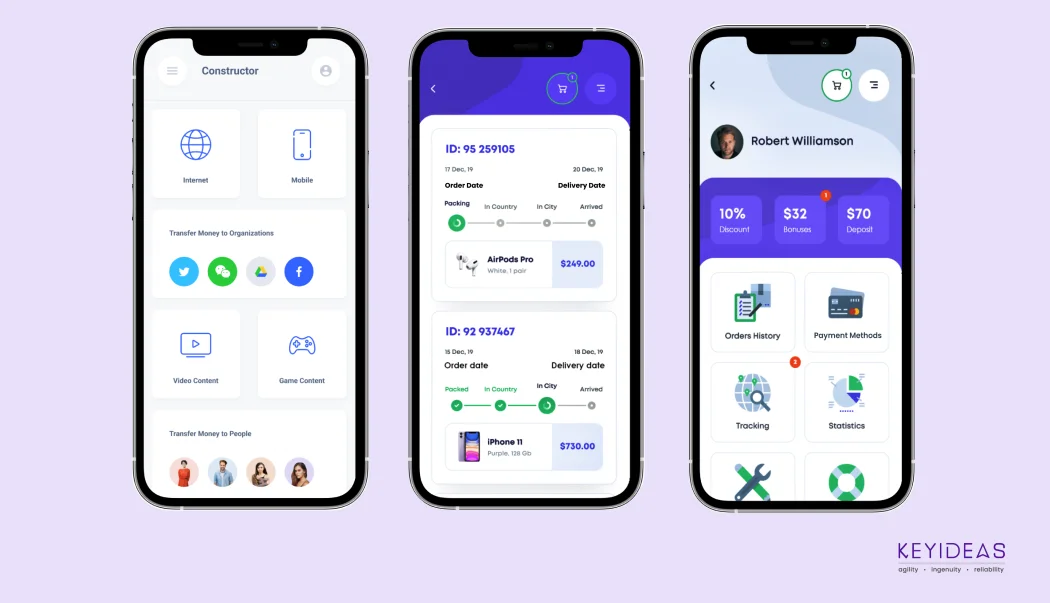
VPN/SSL Certificates
iOS supports standard VPN protocols, allowing employees to securely access company intranets while on the go, ensuring secure communication and data transfer.
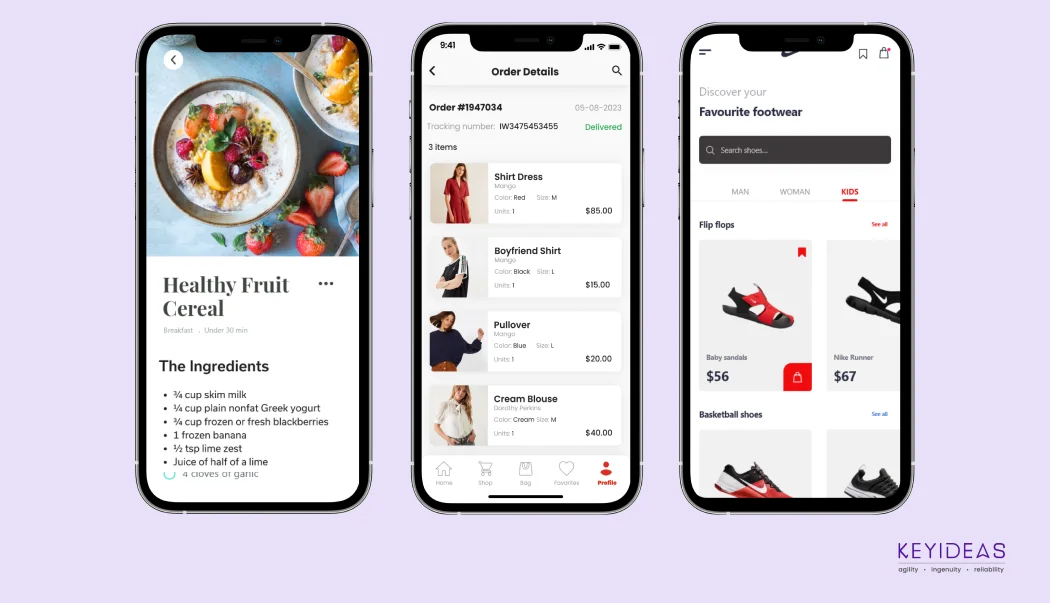
Key Features of Android for Enterprises
Customization and Compatibility
Android allows enterprises to customize apps and interfaces to meet operational needs. Its open-source platform ensures compatibility with various tools, making it adaptable for diverse business environments.
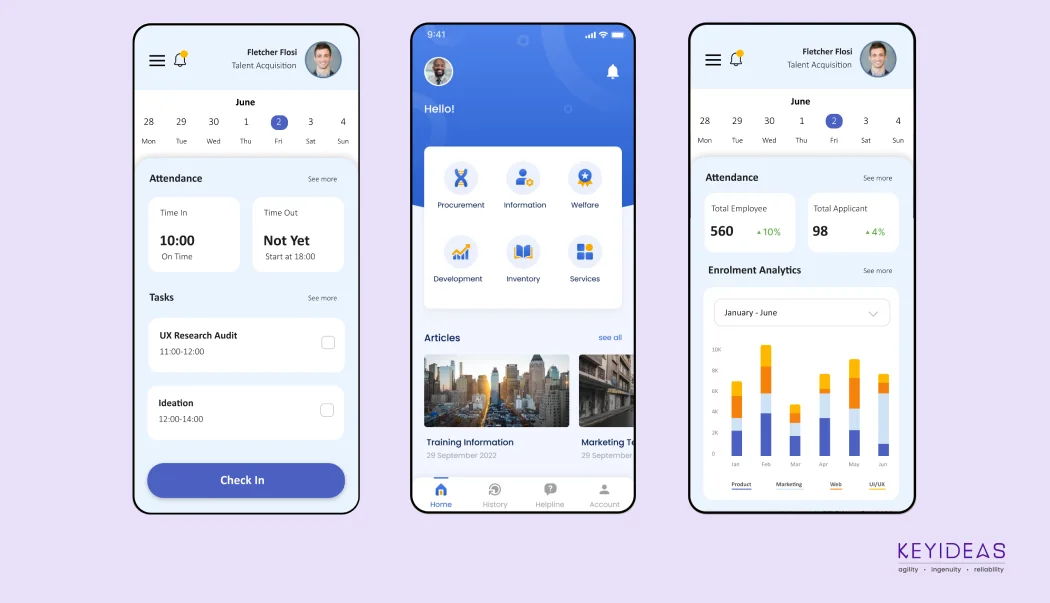
Device Variety and Affordability
Android offers devices across price ranges, from budget-friendly options to premium models. This variety makes it accessible for enterprises of all sizes, ensuring cost-effective mobility solutions.
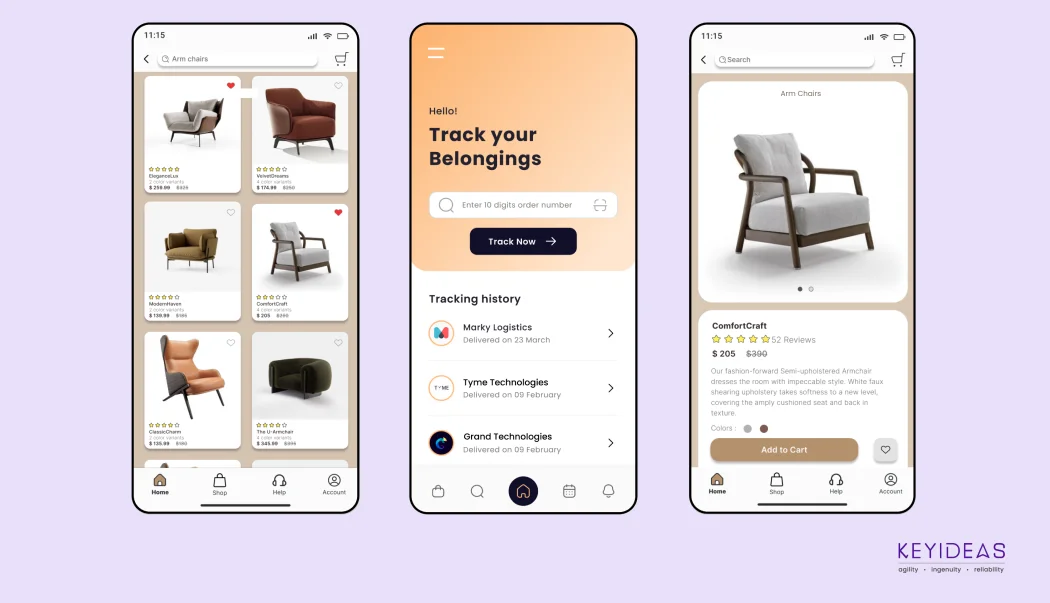
Security Benefits
Android provides flexible security options like biometric authentication, encryption, and customizable app permissions, allowing enterprises to tailor data protection to their specific needs. Features such as VPN support ensure secure communication and safe access to corporate resources.
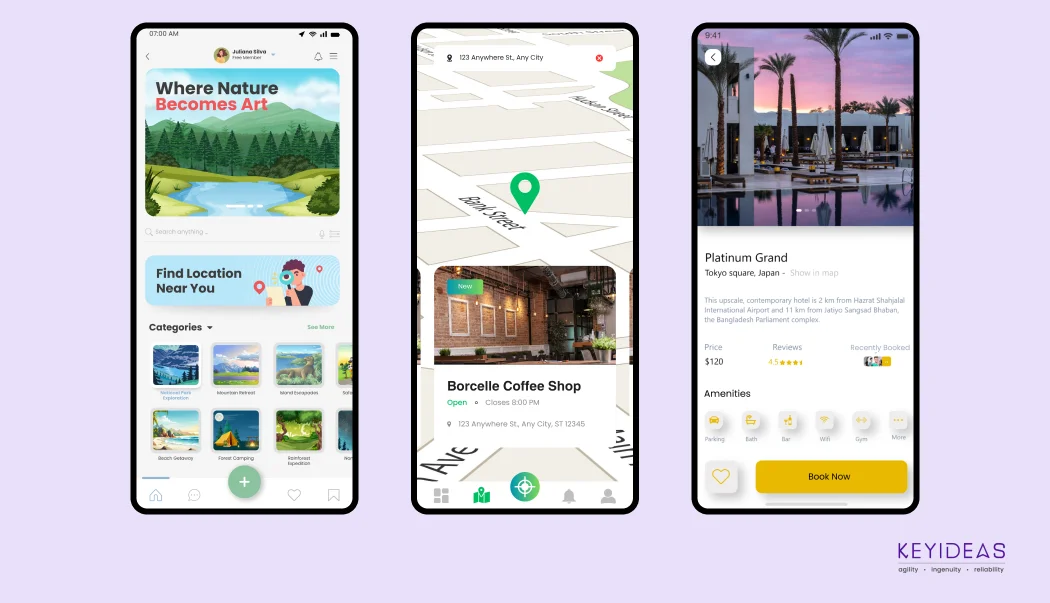
With tools like Android Enterprise, businesses can remotely manage devices through zero-touch enrollment and app restrictions. The platform’s affordability and wide device range make it scalable, balancing robust security with cost-effectiveness.
Let’s Sum Up With Mobile OS!
As of 2024, there are over 3.3 billion active Android users globally, solidifying its position as the dominant mobile OS with a 71.85% market share. Its affordability and customization make it a top choice for enterprises and individuals alike.
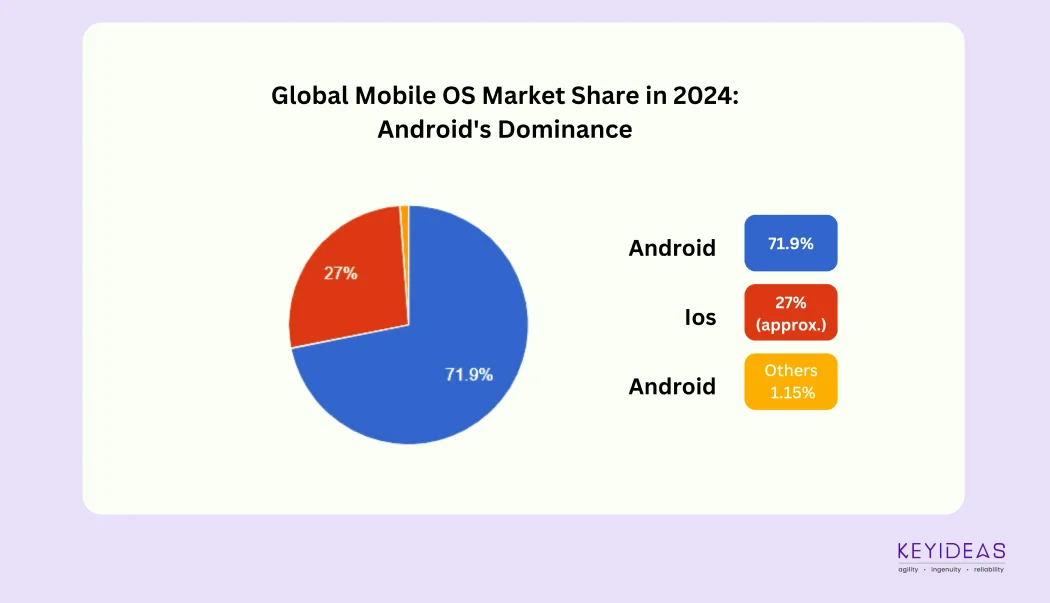
However, challenges such as fragmentation and limited backward compatibility persist, demanding continuous innovation to meet evolving enterprise needs.
Mobile e-Commerceis a natural progression of eCommerce as Mobile e-Commerce Increase Customer Loyalty and Retention of the customer.
Apple's iBeacon ios app enables retailers to extend tailored messages when the customer is in-store thus reducing marketing efforts and costs for them.
Now more than ever, restaurant owners should take advantage of mobile applications to help them improve and grow their business.
Apple's iBeacon technology is redefining many sectors remarkably like iBeacons in retail and education & are no different.
